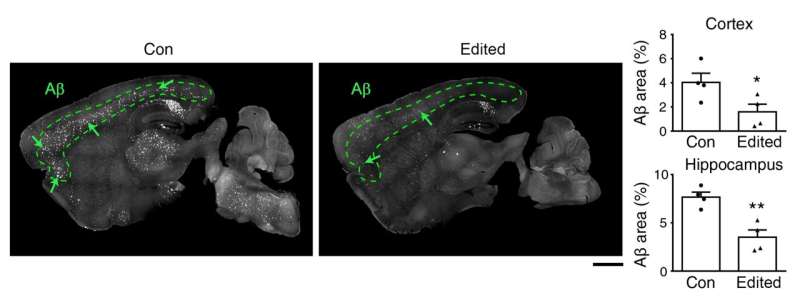
An international research team led by scientists from the Hong Kong University of Science and Technology (HKUST) has developed a novel strategy using brain-wide genome-editing technology that can reduce Alzheimer’s disease (AD) pathologies in genetically modified AD mouse models. This advanced technology offers immense potential to be translated as a novel long-acting therapeutic treatment for AD patients.
…



























